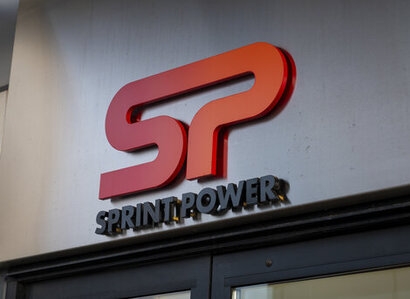
These products, to be developed by a new £9.7 million UK government-backed project, will aim to address existing consumer concerns relating to the charging speeds of today’s electric vehicles.
Funding for Project CELERITAS is being jointly delivered by the UK’s Advanced Propulsion Centre (APCUK), as well as each consortium member. APCUK is a non-departmental public body funded by the UK government aimed at creating the technologies for a cleaner automotive future, while also ensuring the UK remains competitive in the global race to reduce CO₂ emissions. In addition to Sprint Power, the consortium includes BMW, bp, AMTE Power, Clas-SiC and Eltrium.
Sprint Power will design and develop an 800V ‘battery platform’ for high performance and mass market EV and FCHEV applications that will integrate all system electronics and incorporate multiple charging protocols. Targeting BMW’s future battery specifications and requirements, the battery platform will bring together innovations from each partner, including rapid charging cell technology being developed by AMTE Power, bp’s thermal management and next generation EV fluid technology, 1200V silicon carbide switching devices from Clas-Sic, Eltrium’s advanced 800V manufacturing capabilities and Sprint Power’s own 800V DC-DC converter and battery management system (BMS) technologies.
The project will deliver two battery systems, one for BEV applications and one for hybrid applications. The systems will include an integrated 800V to 14V DCDC converter, an 800V BMS and multiple charging interfaces that will include provision for wireless charging in the future. The platform architecture will be suitable for applications in multiple sectors, further opening the potential to service applications ranging from commercial vehicles and energy storage systems to the marine, off-highway and aerospace sectors.
The formation of Project CELERITAS comes at a time when UK legislation is targeting zero tailpipe emissions by 2035, including a ban of the sale of new petrol and diesel ICE vehicles by 2030. While the uptake of BEVs is on the rise, there remains a number of barriers that still need to be overcome before more consumers make the switch.
While a 150-mile range has been shown as sufficient for most drivers, many consumers would like to see BEVs capable of delivering the equivalent range of a conventional ICE vehicle, as well as a charge-time close to that of filling a traditional fuel tank. As more consumers make the switch to BEVs, the demands put on the UK’s public charging infrastructure is also set to increase. With only 68 percent of UK households having access to off-street parking to enable home-charging, and current charge-times regularly taking between 22-90 minutes, waiting times at public facilities is likely to increase.
For additional information:

